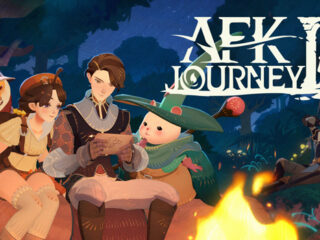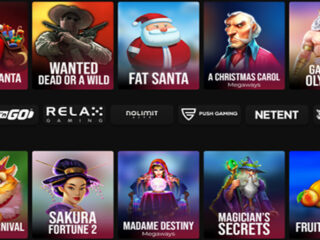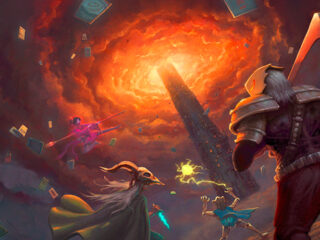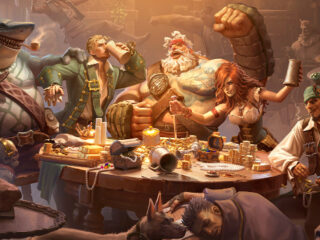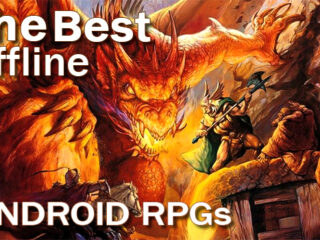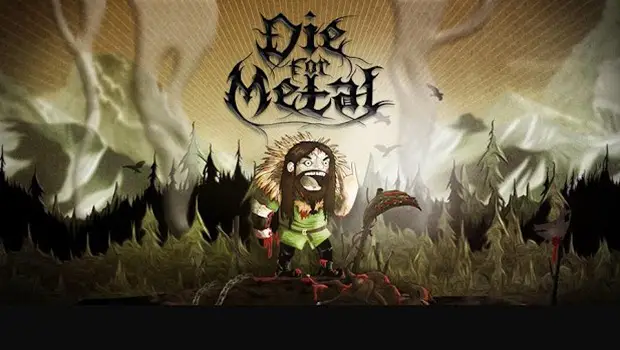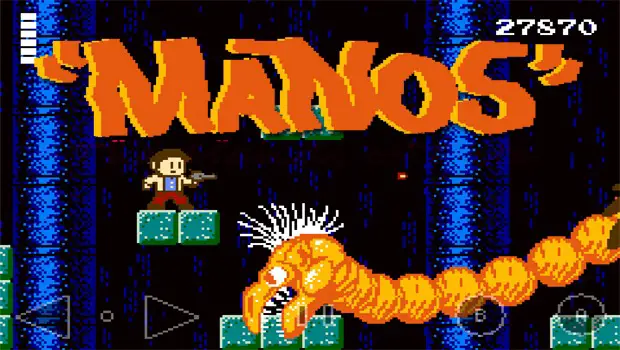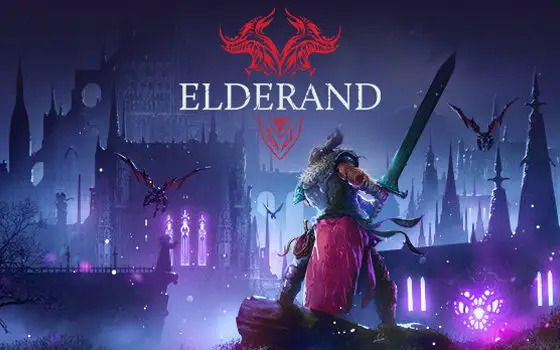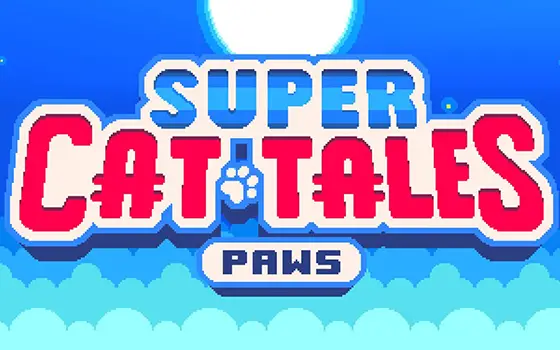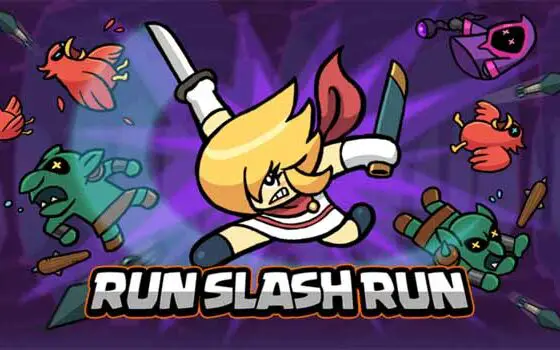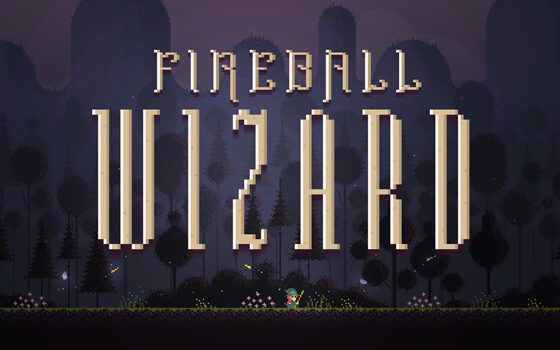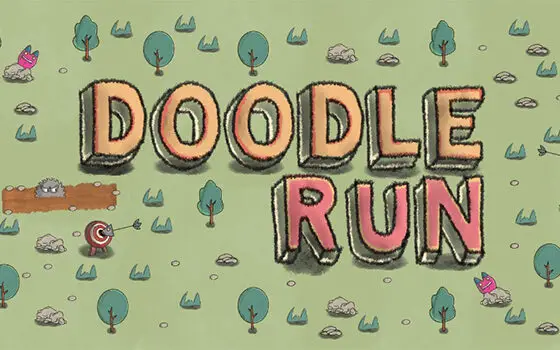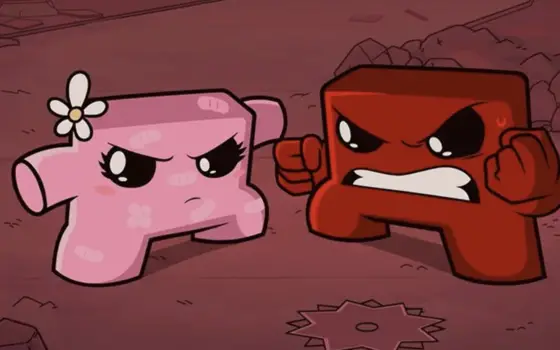Megadeath
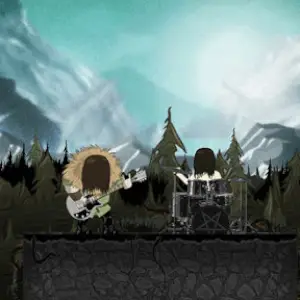 Die For Metal is a 2D platformer that will appeal to hardcore gamers with a masochistic streak. The goal is to navigate a cartoon pagan warrior through 45 levels of brutality for the chance to join the ultimate metal band. As the title implies, you will be dying for metal—a lot.
Die For Metal is a 2D platformer that will appeal to hardcore gamers with a masochistic streak. The goal is to navigate a cartoon pagan warrior through 45 levels of brutality for the chance to join the ultimate metal band. As the title implies, you will be dying for metal—a lot.
The controls are simple to learn, difficult to master. Three buttons allow you to move left and right, jump, double jump, and wall jump. There are no enemies to fight, and the only danger is instant death from a variety of devious pits and traps. While your medieval metalhead can move quickly and jump high, this mobility is actually a drawback in a game where every hazard can kill you in one hit. Control of your momentum is key: undercompensate, and you won’t build up enough speed to close the gaps. Overdo it and you’ll slide right into the next pit of spikes.
The difficulty is compounded by downright sadistic level design. Especially in later stages, the obstacles demand such precision that you’re forced to die over and over again just to figure out what combination of moves is necessary to proceed. The triumph of slipping past one hazard soon deflates with your inevitable death at the next, as you won’t be able to see what onslaught awaits you until it’s too late.

This is also a core game mechanic, as player skill and familiarity with the level only grows with each successive death. Success tastes extra satisfying as a result, and level completion can become an obsession bordering on addiction. Scoring is based on how quickly you can complete a level, offering replay value in the pursuit of better times. An online leaderboard adds a modest dose of multiplayer competition and there’s even a counter for you to show off how many lives you’ve lost in the name of metal.
You don’t need to be a die-hard metalhead to appreciate the game’s overall motif. In fact, the game’s thematic content is where it shines brightest. The fun art style and great sound buoy the gameplay, but certain elements may feel monotonous after extended play. While the grim setting is evocative and cool, after awhile the lack of variety in the palette may come across as drab. Your Viking too changes little throughout the game, his face perpetually locked in a goofy open-mouthed expression, as if he’s ready to chomp down on a massive sandwich.
The sound, while decent, suffers from a similar monotony; you’ll listen to the same death scream so many times you’ll start to hear it in your sleep. The metal soundtrack, on the other hand, is the game’s strongest suit. If you hate metal you’ll obviously want to play the game on mute, but if you’re into the genre at all you’ll likely dig this solid selection of heavy instrumentals. You can also play the tunes you’ve unlocked via the main menu, so it’s kind of like getting an album’s worth of material for free besides.
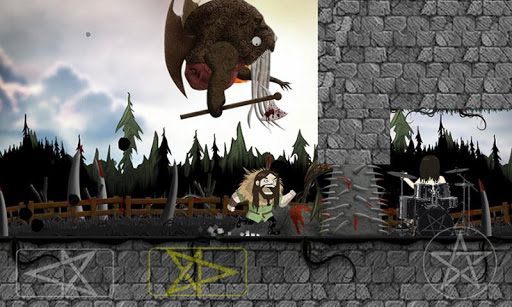
Unfortunately, for a game which demands such a precise hand to play, the touch screen controls can sometimes be unresponsive and the game has a tendency to stutter whenever you approach animated hazards (i.e. at the worst possible moment). Collision detection is also clunky and unforgiving. Landing on the edge of a platform will sometimes repel your character into the pit you were just trying to avoid, and grazing a set of spikes ever so slightly will promptly turn your little pagan into an exploding, bloody mess. These issues do add a stronger sense of accomplishment to completion, but will be a turnoff to sticklers for polish.
Die For Metal’s gameplay isn’t for everyone. Plunging into the same exact meat grinder several hundred times over could wear thin even the most enlightened Buddhist’s patience. If you’re one to throw your controller in a rage, you’d do well to save yourself the cost of a new smartphone and avoid this title. However, if you’re up for a funny, bludgeoning challenge free from condescension and hand-holding, it’s well worth the $1.10 price tag.
Hardcore
Yep.
An awesome theme and addictive concept makes Die For Metal a worthwhile title for fans of platformers, but glitchiness and the resulting frustration holds it back from the approval of a wider audience.

